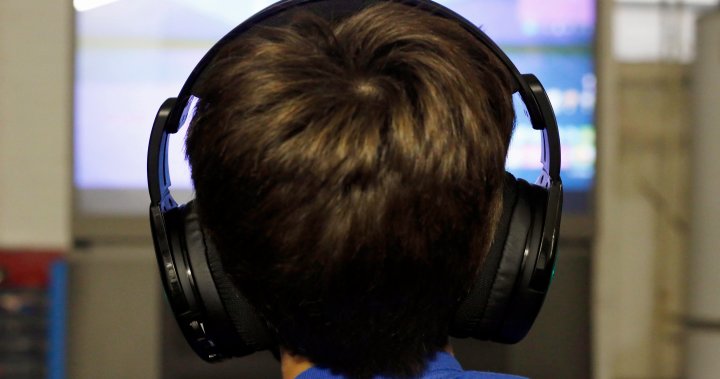B.C. researcher helps finds link between video games and possibly deadly heart rhythm | Globalnews.ca
A leading cardiologist at the BC Children’s Hospital has helped uncover a link between electronic gaming and a possibly fatal heart rhythm in susceptible children.
The peer-reviewed report published this week documented an uncommon but distinct pattern among kids who lost consciousness suddenly while playing video games.
It found cardiac arrhythmias triggered by the activity could be deadly in youth with predisposing, but often previously-unrecognized heartbeat conditions, said co-author Dr. Shubhayan Sanatani in Vancouver.
“This study is a small sample and its an early signal that in some children, I think in certain populations, video games can be dangerous,” Sanatani said.
Read more:
Teen says gaming headset saved his life from stray bullet
Read More
-
![]()
Teen says gaming headset saved his life from stray bullet
Researchers on the project found 22 cases around the world of children who blacked out while gaming, some of whom died after a cardiac arrest. All the children were between the ages of 7 and 16, and 86 per cent were male.
Multiplayer war gaming was the most frequent trigger, they found, linked to more than 60 per cent of the cases in which the kind of gaming activity was known.
“I don’t know if that just represents the proportion of games that are being played anyway. So is that a normal sample or a skewed sample? We don’t have enough data to really ascertain that,” Sanatani said.

According to the report, a proarrhythmic cardiac diagnosis was known in seven of the 22 kids before they lost consciousness, and established afterward in 12 of them.
In some cases, report authors noted that investigation of the children’s cases led to family members being diagnosed with heart rhythm conditions.
Read more:
B.C. researchers hail ‘breakthrough’ in blood-based technology for cancer research
While children and families with proarrhythmic diagnoses are sometimes warned about high-risk activities like competitive sports, video games haven’t typically been on the list.
The researchers, including doctors from the Sydney Children’s Hospitals Network in Australia, said counselling on safe participation in electronic gaming may be prudent for high-risk patients, and the understanding of what qualifies as high-risk activity may need change.
“I think we have to start thinking about treating video games as a much more exciting activity than we’ve been acknowledging, probably talking about that there is some risk,” Sanatani said.
“Video games are probably safe for the vast majority of people — these inherited conditions are rare.”
© 2022 Global News, a division of Corus Entertainment Inc.
For all the latest health News Click Here





